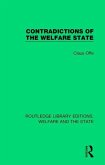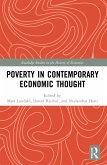This fully revised and updated edition of Happiness provides an accessible introduction to the concept of happiness and how it can be applied to public policy in order to help citizens achieve the good life.
Countries around the globe want to ensure the best for their citizens. They want them to be happy, have a good life and improve their well-being. It follows that, whilst happiness is based upon individuals' subjective perception of their own situation, it is important to understand the concept of happiness in order to form policies that might help individuals to achieve what they believe will make them happier. Applying approaches from disciplines across the social sciences, this book explores varying notions of happiness and how these can be applied to create a theoretical understanding of happiness as a concept. The book then demonstrates how the concept of happiness can be used to analyse social policy in welfare states in areas including work, health and migration, as well as to evaluate everyday life and social relationships.
This book will be essential reading for students and instructors in a range of subjects in the humanities and social sciences with an interest in the concept of happiness and/or welfare states.
Countries around the globe want to ensure the best for their citizens. They want them to be happy, have a good life and improve their well-being. It follows that, whilst happiness is based upon individuals' subjective perception of their own situation, it is important to understand the concept of happiness in order to form policies that might help individuals to achieve what they believe will make them happier. Applying approaches from disciplines across the social sciences, this book explores varying notions of happiness and how these can be applied to create a theoretical understanding of happiness as a concept. The book then demonstrates how the concept of happiness can be used to analyse social policy in welfare states in areas including work, health and migration, as well as to evaluate everyday life and social relationships.
This book will be essential reading for students and instructors in a range of subjects in the humanities and social sciences with an interest in the concept of happiness and/or welfare states.
The theme of 'happiness' is now studied in so many directions that broad-based introductions are most welcome. Greve's book in its second edition fulfils the task admirably, by referring to philosophy, psychology, economics, and above all to sociology. In a concise and updated manner, it briefly addresses all relevant points of the topic, from the meaning of happiness to its measurement, from the sources of the relevant data to its correlated variables, from the arguments for and against the policies for happiness. Interesting are the links of happiness with pollution, living places, migration and welfare, distinguishing, in particular, among countries with different welfare regimes. Finally, it presents useful suggestions for building a comprehensive index that includes social development and its sustainability. The book can be read pleasantly even without having specific disciplinary notions.
Maurizio Pugno, Professor of Economics, University of Cassino, Italy
Maurizio Pugno, Professor of Economics, University of Cassino, Italy








